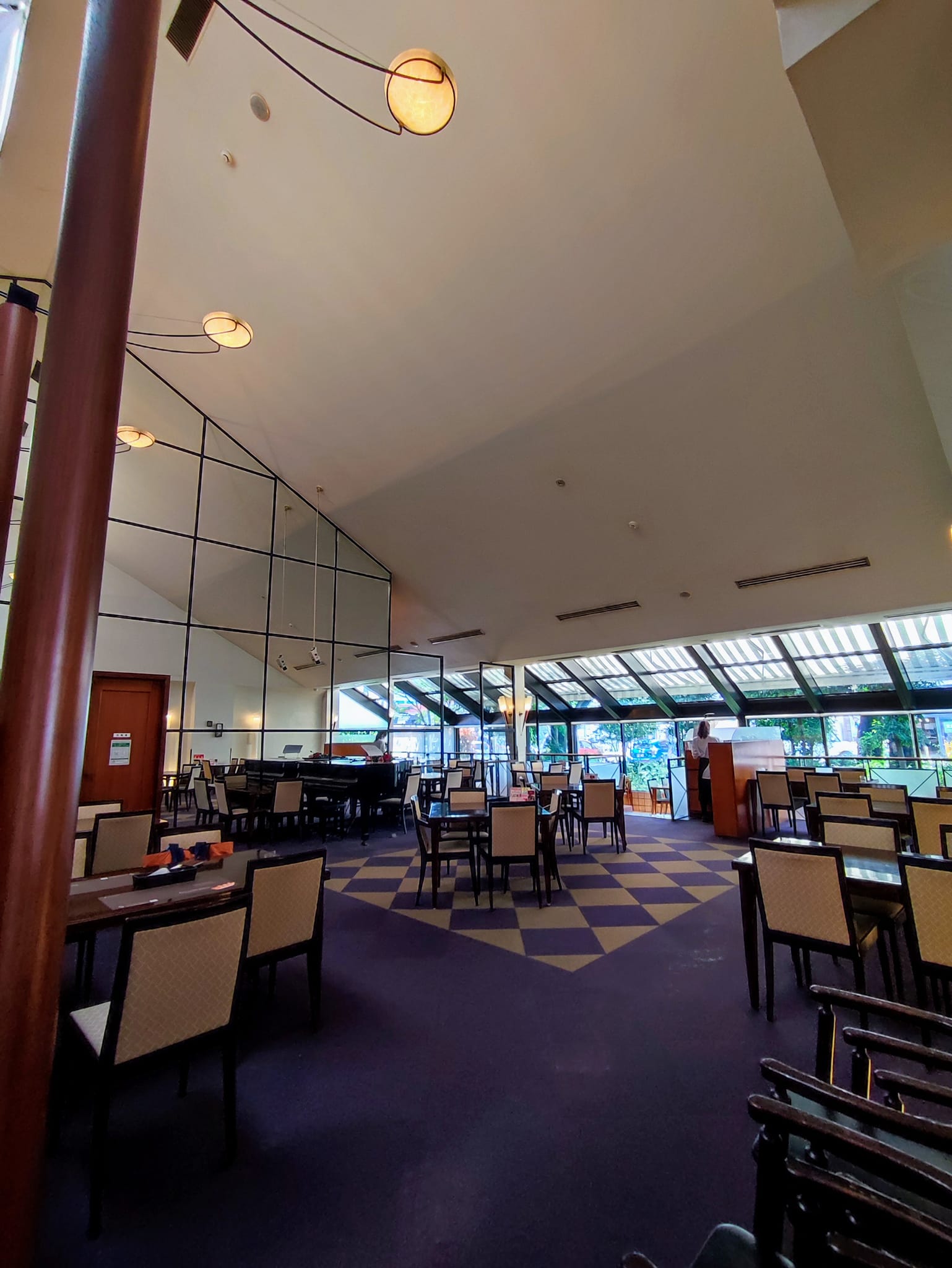店で思うこと

この25年間、関わってきたビジネスはフランチャイズビジネスか飲食業ビジネス。このどちらかだ。
そこには社員、パートナー(アルバイト)が多く存在する。
最大の従業員数は「レストラン サンマルク」1店舗社員3〜4名に、雇用アルバイトは70名。
1店舗の従業員70名オーバー。もう一つの中小企業だ。。。
店舗では、いろんな問題が発生する。
とくに店舗内のコミュニケーションが良く出来ている店舗とそうでない店舗。
風土はどうか?
お店に行くたびに思う。
そしてそのような店舗は往々にして売上が高い。
店長が、経営者の顔を教えているか?
お店に入ったときに感じる第一印象は、お客様がお店に入った時に感じる印象と同じだ。
それでは把握できない部分が非常に重要で、そのためにお店にいく。
店舗を決め、優先順位を決めて、頻度を決めて。。
普段エリアマネージャーがやること、SVがやることをたまに社長が行う。
このサイクルの継続。
その店舗を上記のように意志を持って周っていた。
ベストな人数は10名くらいまで。深くコミュニケーションできる範囲がベストだ。
懇親会は会社の会議室でお菓子を食べながら、ゆるい雰囲気で進めていく。
みんな人生に不安で、就職に不安で、人生の先輩に教えを請いたいと思っている。
自分自身の生の声で直接伝えていく。
店長からは、店舗での業務がしやすくなった。という声が多かった。
同じ志になってくれたら店は一気に変わる。
魂を伝える、語り部になるべきだ。
しかし、それを行わない社長が多い。現場との繋がりが一番たのしい。彼らの頑張りを見れる。
理由は、時間がない。店舗のアルバイト教育は店長がやるべき。他に重要な仕事がある。。。
経営者の一番の仕事は、採用教育と戦略(ハードとソフト)と教えられた。
戦略(ハードとソフト)については次回語ることにして、この採用教育を考えた場合、会社の収益改善の一番の近道は、直営店舗の収益改善にあるわけだから、人に任せている場合ではない。
それには店舗の風土改善が必要であり、そしてまた風土を形作るのは、店舗で働く大半を占めるアルバイトに起因することが多い。
お客様が感じる店舗へのイメージの大半はアルバイトに起因する。
そこに直接影響する、改善する。そんな仕組みが重要だ。
はっきりいって、直営店舗の風土改善と数字改善はアルバイトに直接影響したほうが効果覿面。
彼らに影響して、ふるいにかけて直接口説く。その繰り返し。。
採用ができない、教育ができないという声を多く耳にする昨今。
果たして、どれだけ本気で自社のアルバイトの人生に影響して、口説いているだろうか?
最近、ASEANの店舗をまわりながらそんなことを感じた。
English ↓
What I think of the restaurant!
The businesses I have been involved in for the last 25 years are either franchise businesses or restaurant businesses. It's either one of these.
There is a difference between Japan and Asia, though. Whether it is a service business or a restaurant business, you are setting up an actual storefront. There are many employees and partners (part-timers).
The largest number of employees is 3 to 4 employees per "Restaurant St. Mark's" and 70 part-time workers.
The number of employees per restaurant is over 70. Another small business.
Three employees, each faction, and their associated partners. The kitchen and the hall. The sectionalism. In a store, all kinds of problems occur.
The problems of the store can be seen the moment you enter the store. In particular, there are stores where communication within the store is good and stores where it is not.
Employees and partners, and partners among themselves. Whether or not there is a store culture, not a corporate culture? How about the culture?
I think about this every time I visit a store.
Stores with a high level of communication within the store have a strong store culture, and the manager's ideas permeate the store. And such stores often have high sales.
Do you remember the manager's face when he or she enters the store? Does the manager tell you what the manager looks like?
The first impression you get when you walk into a store is the same impression customers get when they walk into a store.
The numerical status of the store can be grasped by the data sent from the POS. What cannot be grasped with that data is extremely important, and that is why we go to the store.
We decide which stores to visit, what our priorities are, and how often we visit them.
In this way, we visit the store, talk with the store manager, and determine the store's situation. The president sometimes does what area managers and SVs usually do.
This is where the significance lies. The president will identify problem stores and work with store managers and SVs to resolve the issues. Continuation of this cycle.
During the Prime Link era, there were 70 directly managed stores out of a total of 500 stores. I went around those stores with the will described above.
What was most effective in solving problems and improving directly managed stores. It was the above-mentioned store visits and get-togethers with partners (part-time workers). These were meetings for me, the president, and the part-timers only. No one else is allowed to attend. The best number of people is about 10. It is best to have a range of people who can communicate deeply with each other.
Part-time workers are recommended by the manager. Part-time workers who want to influence the president directly are chosen. The get-togethers are held in the company's conference room over snacks and a relaxed atmosphere.
Talks about work, management philosophy, employment, future dreams, family, boyfriends and girlfriends. Various consultations. Talks from the perspective of a much more senior person in life, which the store manager cannot do. And we also exchange our values. Everyone is anxious about life, anxious about finding a job, and wants to learn from their seniors in life.
I will tell them directly in my own real voice.
By holding this meeting, many part-timers have joined the company. Many part-timers' attitudes toward their work are changing. Many store managers said that it became easier for them to do their work in the store. Many of them said, "I am very happy to be here.
It is difficult for a single store manager to change the store culture of a store. If 20 to 30% of the store employees, including the store manager, become like-minded, the store will change at once.
This is especially true for stores where the manager has been transferred. That is why the president should speak directly about the unchanging company philosophy, culture, and work attitude. He should be the storyteller, conveying the soul of the company.
However, many presidents do not do this. The most enjoyable thing is the connection with the front line. You can see their efforts.
The reason is that there is not enough time. The manager should train part-time workers in the store. There are other important jobs.
I was taught that the most important job of a manager is recruiting, training, and strategy (hardware and software).
I will talk about strategy (hardware and software) next time. When I think about recruitment training, the shortest way to improve the company's profitability is to improve the profitability of directly managed stores, so this is not the time to leave it to others.
To do so, it is necessary to improve the store's culture, and again, the culture is often shaped by the part-time workers who make up the majority of the store's workforce.
The culture, the structure, the service, and the hospitality. Most of the image customers have of a store is caused by part-timers.
Directly influencing and improving them is important. Such a system is important.
That was the partner (part-time worker) get-together. Clearly, improving the culture and numbers at directly managed stores would be more effective if part-time workers were directly affected.
In addition, from the perspective of recruitment, it is also meaningful to reap the benefits of the company's internal green harvest. By influencing them, you can sift through them and make direct overtures to them. Repeat.
Nowadays, we hear many people say that they cannot recruit and cannot train.
How seriously are we influencing and seducing the lives of our own part-time workers?
I felt this way recently while touring ASEAN stores.
Assentia Holdings Akira
→ My facebook


